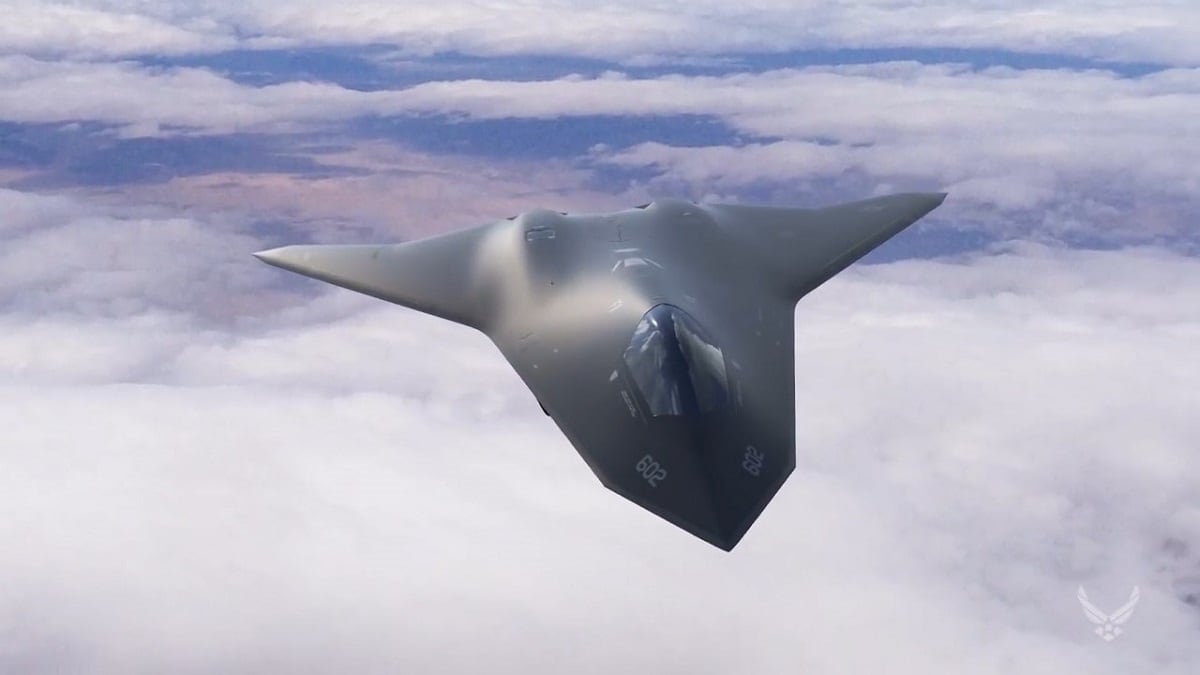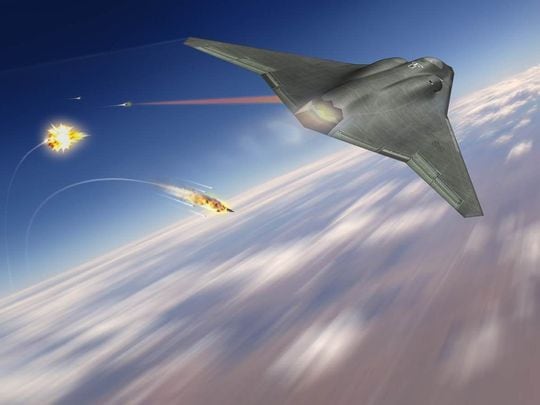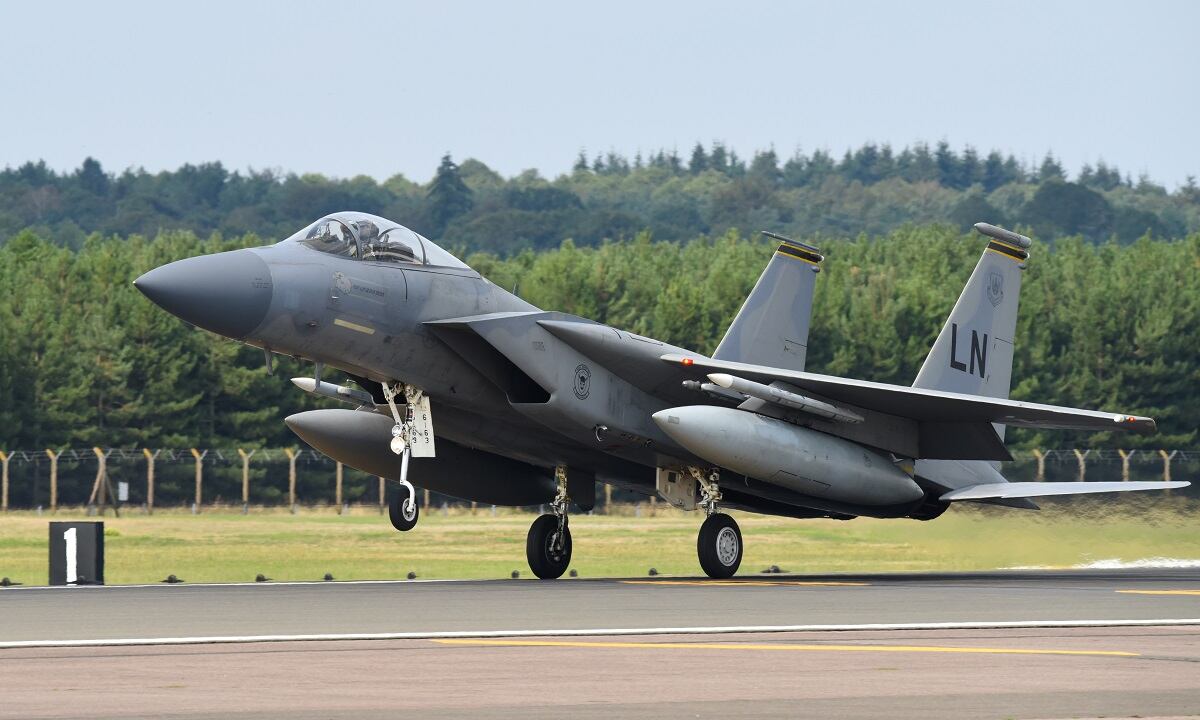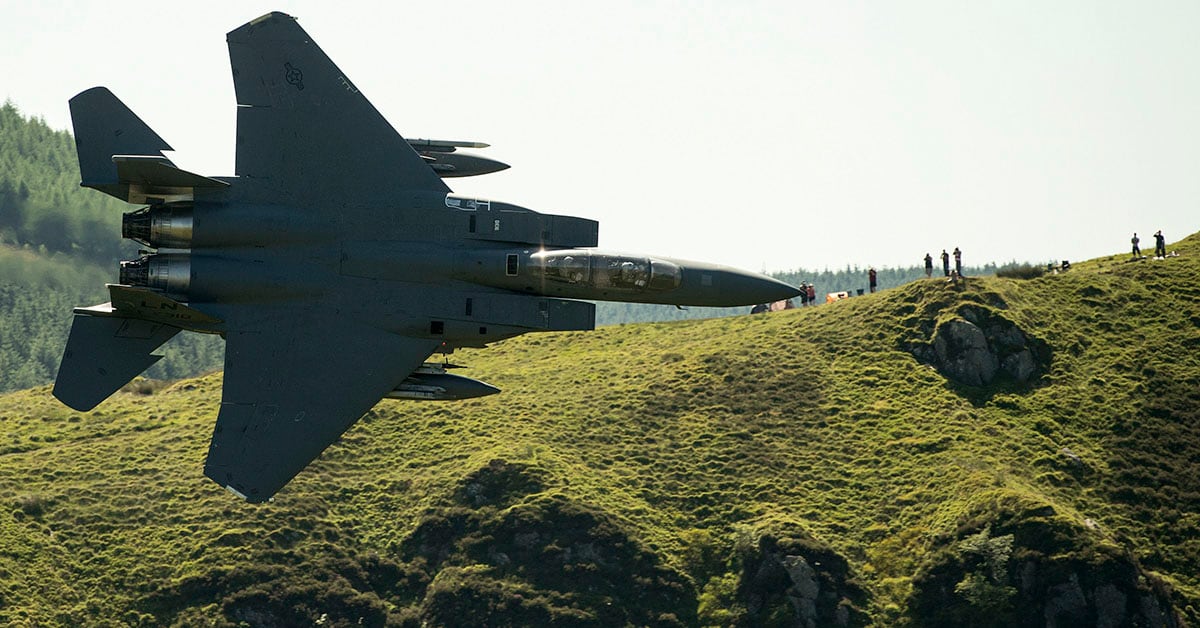WASHINGTON — The two biggest manufacturers of military aircraft have been busy marketing new versions of their fighter jets to the U.S. Air Force, but the service’s top official told Defense News in an exclusive interview that it’s not actually interested in purchasing either of them at the current moment.
This summer, Defense One broke two major stories about sales pitches from Boeing, which is proposing an advanced version of the F-15 to the Air Force, and Lockheed Martin, which has been pushing a hybrid version of the F-22 Raptor and F-35 joint strike fighter similar to what it is reportedly offering Japan.
But just because those companies are offering new jets, doesn’t mean that the Air Force wants them.
In an exclusive Sept. 5 interview, Air Force Secretary Heather Wilson said she believes the service needs to expend its precious financial resources on stealthy, fifth-generation platforms — specifically the F-35 — and thus buying even an advanced fourth generation fighter like the so-called F-15X is not in the cards.
"We are currently 80 percent fourth-gen aircraft and 20 percent fifth generation aircraft,” she said. "In any of the fights that we have been asked to plan for, more fifth gen aircraft make a huge difference, and we think that getting to 50-50 means not buying new fourth gen aircraft, it means continuing to increase the fifth generation.”
What about a new fifth generation plane that would combine the F-35 and F-22?
Wilson shut down that idea as well, saying that proposal "is not something we’re currently considering.”
RELATED

In a statement, a Lockheed spokesman said that the company was focused on the F-35 program but also looking into generational leaps in capability “to ensure our technology, including existing aircraft, remains a step ahead of advancing threats.”
Boeing declined to comment on this story.
The Air Force secretary’s proclamations seem to pour cold water on both Lockheed and Boeing’s sales pitches, but it is always possible that others inside the service are in favor of buying the F-15X and F-22/F-35 hybrid — and that they could continue making the case to Air Force leadership, potentially winning them over.
Sources that spoke to The War Zone said Boeing was in “very serious” talks with the Air Force over the F-15X, but that the service had shied away from making its interest public so as to not to derail it’s number-one procurement priority, the F-35. Defense News has also heard from multiple sources that the Air Force has been in talks with Boeing over the F-15X for over a year, though it’s unknown at what levels those conversations currently reside.
Experts who spoke with Defense News said it’s very likely that the Air Force intends to keep its focus on ramping up F-35 production for the time being, but that alternative platforms could very well be considered in future years.
However, it is the F-22/F-35 hybrid, not the F-15X, that they believe stands a better chance of being adopted by the Air Force.
Defense One, which broke the story about Lockheed’s hybrid offer, wrote that the proposed jet would involve taking the F-22 airframe and outfitting it with some of the F-35’s more advanced mission systems, though some structural changes could also be involved.
“Every F-22 hybrid or derivative I’ve seen has been great,” said Rebecca Grant, a defense analyst with IRIS independent Research.
The Air Force is in great need of such a stealthy air superiority aircraft because it only procured 183 F-22s, she said. Its other plane that specializes in the air-to-air fight, the F-15C/D, was originally fielded in the 1970s.
Grant said she interprets Wilson’s dismissal of the F-22/F-35 hybrid as a reflection of near-term requirements and priorities, noting that “job one is acquiring the F-35.” But in the future, that jet could be what the service decides it needs to contend with current and future threats.
David Deptula, the dean of the Mitchell Institute for Aerospace Power Studies and a retired Air Force lieutenant general, agreed that the service should continue buying F-35s for the time being.
However, the F-22/F-35 hybrid might be a good option for the service in the future, when it begins looking for a next-generation air superiority jet, which the Air Force has variously called Penetrating Counter Air and Next Generation Air Dominance.
RELATED

“I think as the Air Force looks down the road at the concept of a Penetrating Counter Air and Next Generation Air Dominance — where it’s looking at and researching how we achieve order of magnitude increases in fundamental aviation elements such as aerodynamics, propulsion, low observability, sensor suite and sensor integration — there are a lot of options,” he said.

The War Zone, which has published the most detailed account of Boeing’s proposal, reported that Boeing is willing to sell the F-15X under a fixed price contract and intends to deliver the aircraft at a unit cost that’s “well below” $95 million (for reference, each Lot 10 F-35A costs about that much, but unit costs are expected to decrease to about $89 million in Lot 11).
The new F-15s would include a suite of new capabilities including a APG-82 radar, the Eagle Passive Active Warning Survivability System (EPAWSS) electronic warfare suite, a Legion Pod-mounted infrared search and track system and the ability to carry up to 22 missiles at a time.
RELATED

But both Grant and Deptula, who are noted advocates of stealth technology, were less effusive about the sales case for the F-15X.
“I don’t see a role for an F-15X,” Grant said, adding that the service needs the stealth and advanced battle management capabilities of an F-22 or F-35.
While the Air Force used fourth-generation fighters to suppress enemy air defense capabilities during Desert Storm, adversaries have made advances to their own integrated air defenses that will make it difficult for a plane like the F-15X to penetrate, even after stealth platforms have kicked down the door, Deptula said.
“A smart adversary is going to be operating those double-digit surface-to-air missile systems throughout the breadth and depth of the theater, and you’re not going to be able to take them all down in the first 24 hours of a conflict,” he said.
Valerie Insinna is Defense News' air warfare reporter. She previously worked the Navy/congressional beats for Defense Daily, which followed almost three years as a staff writer for National Defense Magazine. Prior to that, she worked as an editorial assistant for the Tokyo Shimbun’s Washington bureau.





